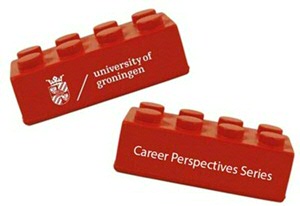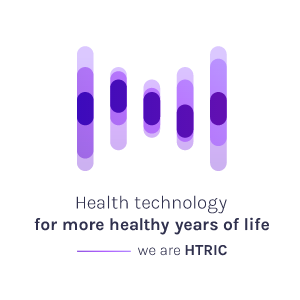UG Meet & Greet Young Researchers: Health Technology, Friday June 17, 2022
We are happy to invite you to join us and our partners in business, government and academia at the Meet & Greet Young Researchers: Health Technology on Friday June 17, from 12:45 p.m. till 17:00 p.m.


The Groningen Graduate Schools has partnered with the newly minted Health Technology Research & Innovation Cluster (HTRIC) because we share the same goal. Their goal is to create and build connections between researchers, engineers, businesses, clinical practitioners, policymakers, end-users and others working in health technology in pursuit of innovations for more healthy years of life. We wholeheartedly support that goal and therefore invite all PhD's to come join us and participate in the exciting Innovation Boosters HTRIC has set up. Expect the latest insights, new perspectives and plenty of network opportunities
For whom? Young researchers from the UG / UMCG, entrepreneurs from the region and representatives of governmental organizations, companies and non-profit organizations, with specific interest in health technology.
By whom? Groningen Graduate Schools and the team @ HTRIC
You can find a description of the Innovation Boosters below, and you can find the full Meet & Greet programme here! Have you not registered to participate yet? Please register with the button below.
We look forward to meeting you on Friday June 17!

Description of the Innovation Boosters - more details will be added as they become available
1. Digital phenotyping in (mental) health (formerly called Digital monitoring of mental wellbeing)
Digital phenotyping, the measurement of human behavioral phenotypes using personal devices, is rapidly gaining popularity. Novel initiatives, ranging from software prototypes to user-ready research platforms, are innovating the field of biomedical research and health care apps. One example is the Behapp project (www.behapp.com), which offers a fully managed digital phenotyping platform as a service. The innovative potential of digital phenotyping strategies resides among others in their capacity to objectively capture measurable and quantitative components of human behavior, such as diurnal rhythm, movement patterns, and communication, in a real-world setting. (Jagesar et al., 2021)
In this workshop, we will first present to you how we use both active assessed questionnaires and passive digital phenotyping to study social functioning in mental health, and look ahead to the possibilities of using digital monitoring for the early detection of disease, the prediction of relapse and personalized medicine. We will use the second half of the session to think together about the potential (future) applications of digital phenotyping in your own field of research or clinical practice.
This workshop will be hosted by Renate Kat and Anna Langener (Groningen Institute for Evolutionary Life Sciences, University of Groningen)
2. Medical isotopes
Content will be available soon
3. Artifical limbs (mechatronic design and control)
Limb amputation has large impact on the patients’ participation and quality of life. In this innovation booster workshop on Artificial Limbs, we want to discuss the surgical procedures, the engineering and clinical methodologies towards rehabilitation, and the outlook to the future.
Organised by Prof. Dr. Raffaella Carloni and Prof. Dr. Han Houdijk
Programme:
– Opening by the organisers
– Lower limb amputation by Prof. Dr. Paul Jutte
– Musculoskeletal modeling of people with lower-limb amputation by Vishal Raveendranathan, MSc
– Motor control in people with upper extremity prosthesis by Dr. Raoul M. Bongers
– ZonMV ProtheseAcademie by Prof. Dr. Han Houdijk
– Discussion and Closing
4. The Green OR: The road to a more sustainable environment
- The UMCG OR sustainability project
- Green Innovation in the OR
- Sustainable Anesthetics
More content will be available soon
5. Nanomedicine and pharmaceutical businesses
Nanomedicine is the application of nanotechnology to achieve innovation in healthcare. It facilitates personalized, targeted and regenerative medicine by delivering the next level of new drugs, treatments and implantable devices to clinicians and patients for real breakthroughs in healthcare.
Nanomedicine also enables early detection and prevention and drastically improves the diagnosis, treatment and follow-up of many diseases.
Nowadays, nanomedicine has hundreds of products under clinical trials, covering all major diseases, including cancer, cardiovascular, viral infections, neurodegenerative, musculoskeletal and inflammatory. Nanomedicine already accounts for approximately 80 marketed products, ranging from nano-delivery and pharmaceutical to medical imaging, diagnostics and biomaterials. The most recent and well-known case is the development and clinical application of the COVID-19 nano vaccines that have unprecedentedly revolutionized both healthcare and the pharmaceutical and nanomedicine fields.
In this workshop, invited speakers will present and discuss the current status of the nanomedicines, the benefits (and challenges) in translating them to the clinic, how to move from bench to successful pharmaceutical businesses, specific successful case stories, and provocative questions to engage with the audience.
6. MDR update
Finally, you are convinced that your innovative product is ready. After months of testing, adapting and asking for feedback, you’re about to try your product first-time in-human or, after having successfully conducted human trials, launch your product to the market. Then you are confronted with the hurdle of passing the METC or legislative bodies, and you need to provide data you never thought of. Moreover, this is the first time you notice the full impact of some vague term from the past: MDR!
It sets you back months and, considering all unexpected costs mounting at your expense, it puts the whole launch at a business risk. If you recognize or fear such a situation, this booster is definitely for you! On 17 June, experts in the field of Medical Device Regulation or the Medical Ethical Review Committee and business people who experienced what MDR can do to your business share their experiences and recommendations.
This HTRIC MDR Booster aims to make you aware of the MDR regulatory issues and how to turn this into a competitive advantage for your business.
7. AI in imaging
Content will be available soon
8. Serious gaming in health
Games have proven to provide attractive applications in many healthcare areas. Examples can be found e.g. in training games, diagnosing aids and behaviour changes. However, to launch a successful game in the healthcare environment, many challenges need to be overcome: a serious approach is required from the start of the game development!
On the 17th of June, NHL Stenden university will host an Innovation Booster Workshop to provide insights into the complex development process of Games for Health. By using a practical case as an example we will illustrate the steps we take from the exploration of the issue to the design and evaluation of the implementation. By joining this workshop you will experience yourself how the game design process has changed by co-creation with the audience involved.
If you ever thought about developing games for healthcare applications, or work as a healthcare professional and are looking how a serious game can help boosting your daily professional work, then this Innovation Booster Workshop is for you. Don’t miss out!
9. Business Generator Groningen
Herman Groen – Business Developer at Business Generator Groningen: What does a Knowledge Transfer Office like Business Generator Groningen do and why is that important for you as a researcher?
Annemiek Tepper – Patent Attorney at Patent & Trademark Office VO: Patenting may be important for you as a researcher, and patenting and publishing does not have to be in each other’s way.
10. ELSA lab
Health technology innovation, including Artificial Intelligence (AI) development, is moving fast and with high expectations. It offers opportunities to contribute to high-quality and affordable healthcare but raises many questions. To promote the development and implementation of trustworthy and human-centred AI, several ELSA (Ethical, Legal and Societal Aspects) labs are being set up in the Netherlands, in which researchers, societal partners, companies, citizens and patients work together. In this innovation booster, we will explain how the ELSA lab in Northern Netherlands aims to contribute to the responsible development and implementation of AI in healthcare. You will learn about responsible development and implementation, and by making use of a serious game, you will be able to reflect upon and discuss the challenges of responsible development and implementation of AI in healthcare.
